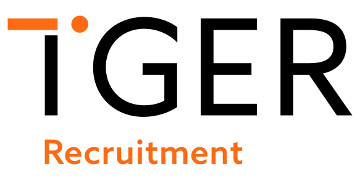Companies that make the index are scored on five pillars: leadership and talent pipeline, equal pay and gender pay parity, inclusive culture, anti-sexual harassment policies, and external brand. This was BAT's first time of participating in the scheme. Overall, the company exceeded the average 73% score at 75%.
HR magazine speaks to Hae In Kim, BAT’s director of talent, culture and inclusion to learn more.
HR: How was the above average overall score achieved?
We are committed to ensuring equal access to opportunities throughout the organisation and therefore encourage disclosure of gender, via SuccessFactors, BAT’s HR system, from the very beginning of an employee’s journey.
This enables us to continuously monitor, track and support the progression of different groups.
BAT's commitment to diversity and inclusion also extends beyond gender to other protected characteristics. In 2022, we expanded the scope of our voluntary ethnicity identity collection and reporting beyond the UK to six additional markets.
Across these markets, 92% of BAT's global workforce and 82% of its senior teams have confidentially disclosed their ethnic background.
HR: How have you improved recruiting initiatives to make them more gender-inclusive?
At BAT, we are using an increasingly data-led, digitally enabled approach to ensure fairness and inclusivity are embedded throughout our recruitment process.
This incorporates a new career site which transforms the candidate experience through personalised content, specialist technology which designs gender-neutral job adverts, and a blind CV screening process.
We also offer programmes to support women in STEM [science, technology, engineering and maths] and professionals returning to the workplace after a career break.
This strategy focuses on attracting, developing, and retaining more women across various business functions. We are a member of WISE in the UK, which aims to increase the representation of women in STEM roles.
HR: What is your gender pay gap?
In 2022, our pay equity audit covered approximately 40,000 employees in 44 markets, including the UK, from a gender perspective. The consolidated results show that women and men are paid within 1% of one another for the same or equal work. Additionally, in 2022 in the UK our mean pay gap improved by five percentage points.
HR: Are you looking to report more pay gaps for other typically underrepresented groups?
We continue to voluntarily publish additional data and significantly expand the scope of our voluntary pay equity analysis and reporting. We recognise the vital importance of enabling our employees to flourish regardless of their gender, ethnicity, culture, or other differences as we build 'A Better Tomorrow'.
As a result of our increased voluntary ethnicity disclosures, we have been able to expand our ethnicity pay equity audit to seven countries (including the UK), covering approximately 14,000 of our people.
The consolidated results show that ethnically diverse groups and non-ethnically diverse groups are paid within 1% of one another for the same or equal work.
HR: What percentage of women are currently in management roles and senior leadership teams at BAT?
Our management roles are 41% female, and that figure is 30% for our senior leadership teams. As a result of our gender-inclusive recruiting initiatives, in 2022 we achieved over 57% female representation in our graduate intake and 47% in external management hires.
HR: What specific efforts are you making to advance this by 2025?
There is of course always more work to be done, which is why BAT is committed to increasing the proportion of women in management roles to 45% and on senior leadership teams to 40% by 2025.
The initiatives BAT has established to achieve these goals include adopting family-friendly policies, implementing mentoring programmes, supporting community programmes, and establishing clear accountability for BAT’s business leadership teams for achieving the 2025 D&I ambitions.
In celebration of International Women's Day HR magazine will be posting articles throughout March highlighting ways to challenge barriers to gender equity in the workplace. Read more here.










